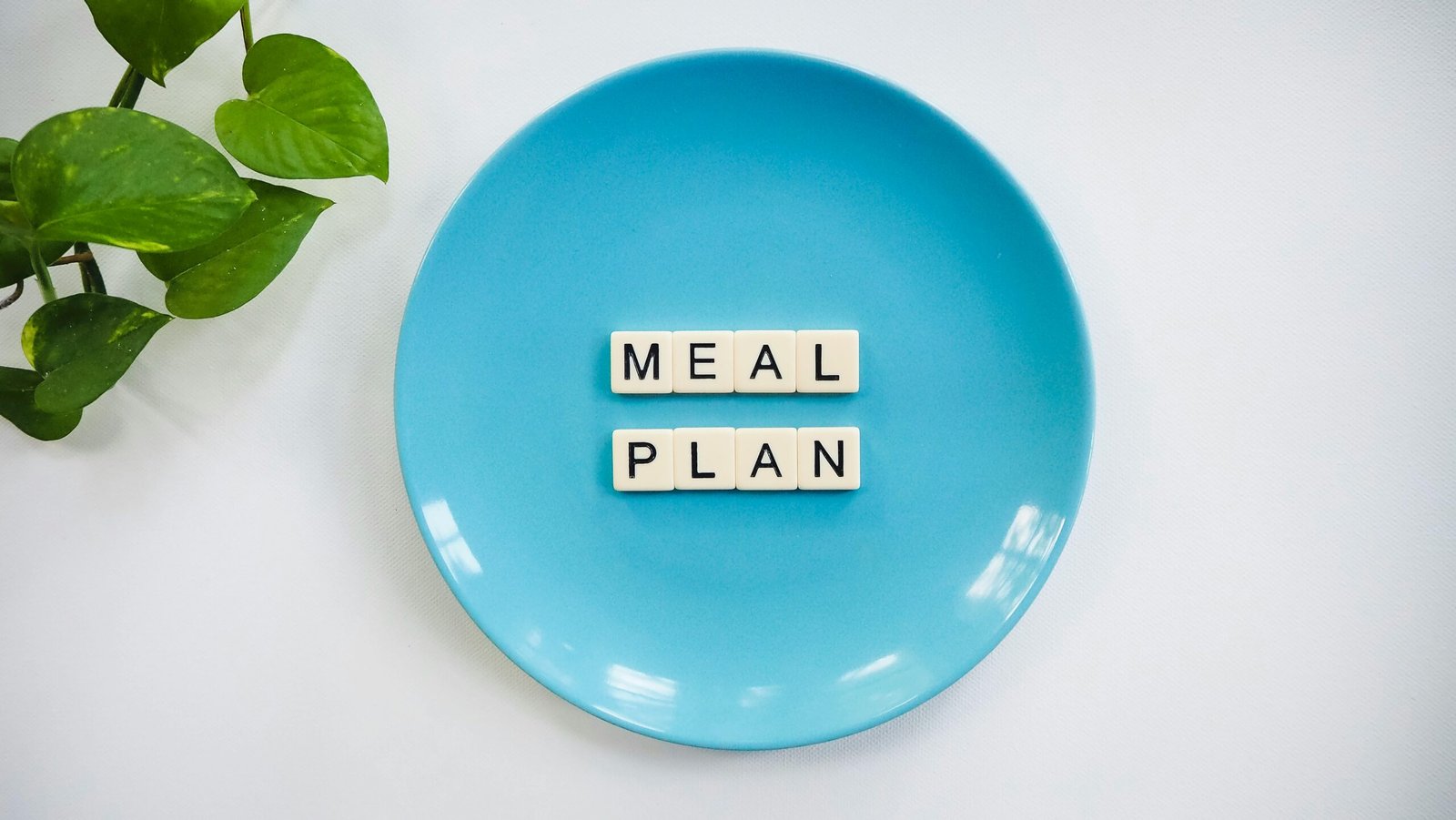Healthy Meal Planning Tips
I’ve been a nurse for 10 years, and before that, I was a public safety dispatcher. In both jobs, I worked between 10 and 12 hours, mostly on the night shift, and slept during the day. I was tired, stressed, and not in top physical form.
Through the years of working these shifts, staying healthy became more difficult. I began to gain weight, I was frequently tired, I had more aches and pains, and I felt older than my age. I knew something needed to change!
When I looked at ways to change my life, I discovered that my food was unhealthy, and I needed to change my diet significantly. I researched ways for busy people to eat healthier, and the answer from the research I found was to simply plan for nutritious meals.
What is the Benefit of Planning Meals?
Planning meals seems like a daunting task and another waste of time. However, taking one day a week to plan meals for the following week (and perhaps even shopping and prepping for those meals) can ultimately save you time and help you eat healthier.
Here are six ways planning meals is helpful
- Saves Time: Planning meals can help you save time during a hectic work week and eliminates the need to make last-minute decisions about where to eat or what to cook.
- Healthier Eating: When you plan your meals, you can ensure that they are balanced and full of nutritious food. This prevents the need to rely on unhealthy choices at fast-food restaurants or convenience foods, which often have higher calories, unhealthy fats, and high sodium content.
- Saves Money: Planning meals helps you spend less on food. It also reduces impulse buys at the grocery store and helps you get only what is needed, which also helps minimize the food you waste.
- Strengthens Relationships: Planning meals together as a family or a couple can help create deeper bonds by spending quality time together. Parents can also take this time to teach children about nutrition, which can help form a strong foundation for healthy eating in the future.
- Reduces Stress: A weekly meal plan can help alleviate the anxiety and stress that come with making mealtime decisions. This extra time can be used to focus on family, friends, and self-care.
- Improves Health: Eating well-balanced, home-cooked meals consistently can improve health. Research shows that eating healthy, whole foods can help control chronic illnesses, reduce obesity, improve sleep quality, and positively impact mental health.
Overall, planning meals is a valuable tool for everyone, especially those with hectic schedules, and can help improve health, save time, be more economical, and build closer relationships.
Why Don’t We Do It?
Busy people often struggle to set time aside to plan meals and make nutrition a priority. It can be due to a variety of reasons:
- Busy Schedules: Busy People tend to have competing and demanding schedules that leave little time for prioritizing health. Planning meals can be challenging between meetings, work commitments, family schedules, and other things that consume time.
- Competing Priorities: People who face tight schedules, work deadlines, family obligations, and little time to get everything done will lean toward the path of least resistance when it comes to planning meals. Convenience is often prioritized over healthy eating, with fast food and takeout meals taking precedence over a home-cooked, more nutritious meal.
- Stressful Lives: Stress, anxiety, and depression can lead to emotional eating and reliance on convenience foods high in calories, unhealthy fats, and sugar. These foods may trigger the temporary feeling of comfort, but over time, they can lead to developing chronic illness.
- Being On-the-Go: People who must travel for work or commute long distances often search for quick food options for themselves and their families. Both travel and commuting can cause the feeling that there is little time left in the day to plan and cook a meal and the need to frequently purchase meals at fast-food restaurants on the way home from work.
- Conflicting Advice: The diet industry has excessive amounts of nutrition information available online, with even doctors, nutritionists, and government organizations disagreeing with each other. Trying to sort through the numerous recommendations can be overwhelming and can prevent anyone from trying to plan healthy meals.
Daily time constraints, conflicting priorities, stressful lives, and many other factors can make it difficult for anyone to consistently plan healthy meals for themselves and their families. Addressing these challenges requires prioritizing healthy eating and developing good weekly habits.
5 Ways to Get Started Meal Planning
- Set Goals: Determine precisely why you want to plan meals. Do you want to save time? Do you need to eat healthier? Does your family have a lot of extracurricular activities that prevent you from cooking at home? Write these down as a starting point to help you overcome the obstacles.
- Create a Meal Planning Schedule: What day will you plan your meals? Will it be once per week, or do you want to do it once per month? Remember to give yourself time to accomplish this goal. If you can’t plan for the whole month, break it down into weekly goals.
- Balance nutrients: When planning meals, balance the carbs, protein, and fats you get in each meal. This will help you stick to more nutritious meals and meet any health goals you have for yourself and your family. Remember to fill half of your plate with fruits and vegetables, as this will reduce calories while helping you fill up with fiber, vitamins, and minerals.
- Keep it Simple: Remember that there is no ‘one way’ to eat right. Far too many fad diets circulate, causing confusion. Keep your meals simple and stick to foods that your family enjoys. Make small steps toward adding healthier versions of familiar recipes instead of completely changing the way your family eats.
- Get the Family Involved: Set some time aside on a weekend day to ask the family their ideas for the weekly menu. If everyone puts in a few ideas, the meal plan can take less time. Once the plan is set, list the needed ingredients, and plan a trip to the grocery store. You can also use a monthly calendar and have family members write their menu ideas for each day of the month. This spreads the task of meal planning to everyone and removes the burden from one specific person in the home.
How To Stay Motivated to Keep Going
Okay, so you have decided to start planning your meals. You have a goal, you have the tools, and your family is on board with the idea. But how do you keep the motivation going to continue planning meals every week?
Here are some helpful ways to stay motivated:
- Set goals – Determine why you want to plan your meals. Having a clear goal will maintain motivation, whether it’s to get healthy, reduce costs, or save time.
- Keep it simple – don’t overwhelm yourself by trying to create elaborate meals. Create simple, straightforward plans that include family favorites every week.
- Keep the family involved – Remember to involve the family in the entire planning, shopping, and cooking process. This will spread the responsibility among everyone and not place the burden on one person.
- Make it a routine – choose a specific day of the week and time of day to create the plan and stick to it.
- Build inspiration – use cookbooks to find inspiration or find new recipes online that look delicious, easy, and nutritious.
- Stay flexible – Remember to keep your plan flexible. Things happen during the week that may cause your plans to change. You can switch meals with other days or add a different recipe than initially planned. In that case, you will enjoy the process rather than dread it.
- Prep foods in advance – try to set time aside to wash your vegetables, marinate your protein, and set out pots and pans that will be used for the meal. This will help reduce the time it takes to complete the meal.
- Track your progress – keep track of positive outcomes because of your meal planning. If the goal is for someone to reduce blood pressure, measure it daily to watch it decrease over time. If weight loss is the key, keep track of weight and reward yourself with a non-food item when you lose weight.
Remember, meal planning should be a lifelong tool for maintaining health. Don’t view it as a quick way to get healthy while looking forward to quitting.
So, if you are ready to save money, reduce wasted food, and enjoy healthy, delicious homemade meals daily, download our free planners today!
Download Free Templates Here:
Minimalist Weekly Meal Planner




